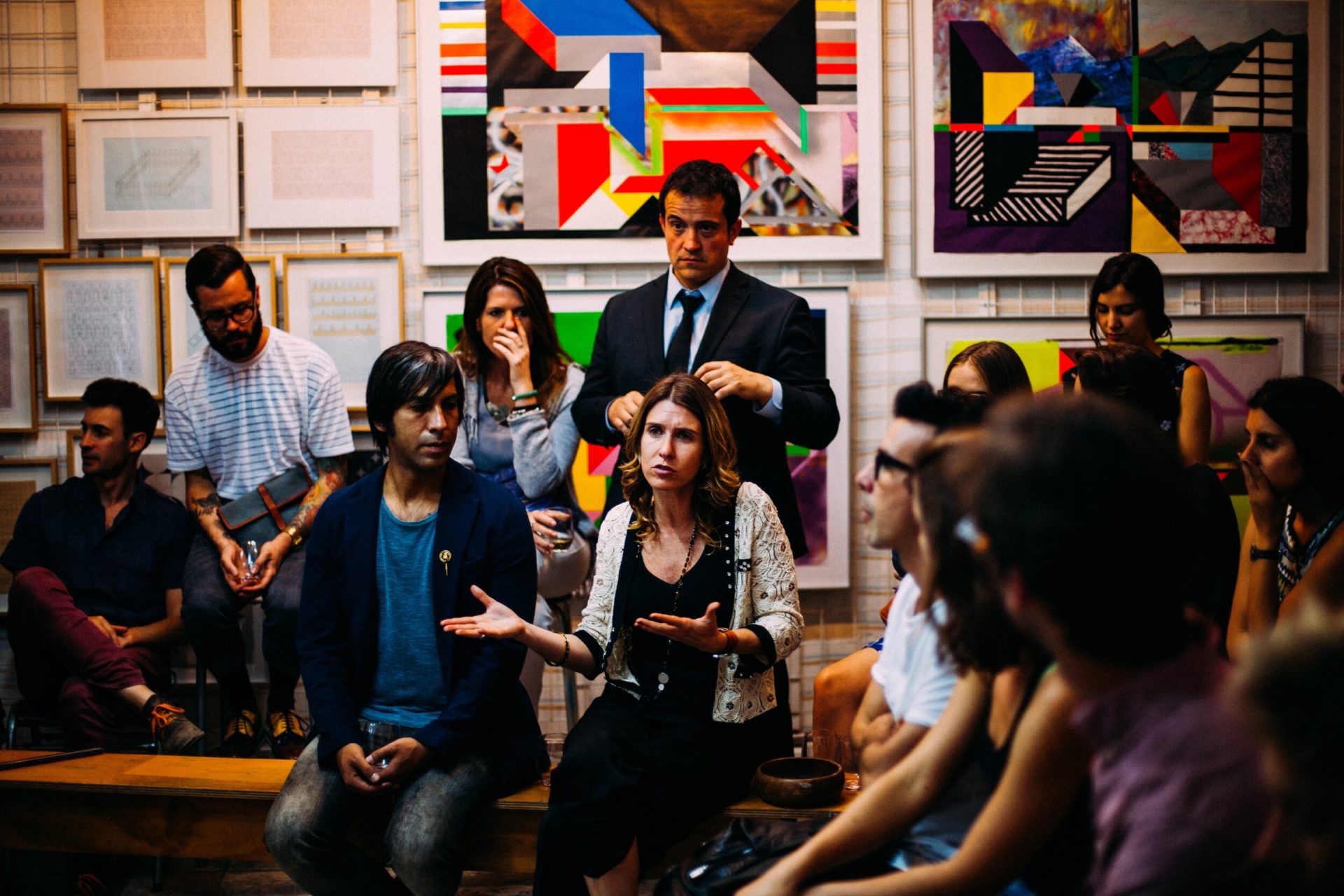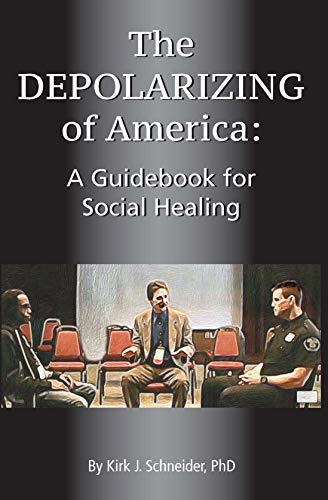
For the past fifteen years, I have facilitated bridge-building dialogues with people from highly conflicting backgrounds. I have mediated supportive, structured dialogues among hard-core liberals and fiery conservatives, impassioned multiculturalists and staunch nationalists, zealous libertarians and die-hard communitarians and other such rivaling groups. Most of these encounters have taken place in organized meetings by groups such as Braver Angels, a grassroots movement that brings political opposites together for “living room” style dialogues. I have also facilitated and founded the Experiential Democracy Dialogue, a one-on-one format that supports people of rivaling backgrounds to get to know each other as human beings rather than as stereotypes.
Based on these experiences and their corresponding support in the research literature, I can state the following: As a result of the dialogue groups, participants feel less angry and more comfortable with one another; less estranged from and more understood by one another; and less fearful of and more curious about one another.
The Depolarizing of America: A Guidebook for Social Healing
By Schneider, Kirk
These findings also coincide with what ex-members of extremist cultural and political groups say about how they and others broke away from those groups. For example, a recent study by the Rand Corporation noted that ex-members of extremist political and ethnic organizations cited the need for making contact with people of different backgrounds, learning about these people, and engaging in shared tasks together as key to their own and others’ deradicalization. Rand also indicated that the more participants were exposed to people of diverse backgrounds, the more they disconfirmed the stereotypes of their leaders.
Other studies – such as the 2019 survey by a group called “More in Common” – found that partisan political groups have very distorted views of the “other side.” For example, they found that Democrats and Republicans imagine that almost twice as many people on the other side hold extreme views than really do. Specifically, they found that on average Democrats and Republicans believe that 55% of their opponents’ views are extreme, although only about 30% are. They also found that people who consume news “most of the time” are almost three times as inaccurate as those who consume it “now and then.” In sum, the investigators concluded: media and political rhetoric distort Americans’ views of each other, and that arguably, the best single remedy we have against raging civil discord is dialogue.
I experienced this shift in attitude in one of my first group meetings with Braver Angels. At that meeting, two other male participants who happened to be my age and raised in my hometown joined in. Although we were geographically close, ideologically we were miles apart. One of the participants, an African American, grew up in the town’s inner city, the other a Caucasian, grew up in a heavily conservative working-class area of town, and I, also a Caucasian hailed from a comparatively liberal, middle-class part of town. While our initial interactions with each other were hesitant, by the end, things began to dramatically change. Suddenly, and quite spontaneously, we huddled in the middle of the room and started sharing stories with one another. Ironically, however these stories had little to do with the topic of our group meeting but were almost exclusively about our hometown—the sports we participated in, the ballgames we attended with our fathers, and the hilarious television personalities we witnessed growing up. In short, as we authentically “met” each other, much of our ideological conflict faded; and what we were left with was a playful, and even kindred feeling of fellowship, that sharply contrasted with our initial contact.
What all this amounts to for our society is striking. By remaining in our ideological bubbles, we are not only distorting our perceptions of one another but quite literally injuring each other. And for what? A set of ideas? A skin color? A party’s rallying cry?
My take-home message is plain. At the heart of these dialogue formats is the capacity to be more present to one another. It is the capacity not so much to change peoples’ minds or even the policies they support, unless of course those policies pose an immediate threat. It is the capacity to sit with and “hear” one another, to learn about and understand one another. This attitude of curiosity rather than presumption, of perceiving one’s humanity rather than partaking in stereotypes, enhances the conditions for further agreement, and thereby, eventually, frequently, policy development.
In this light, I call for a mass mobilization of the kind of dialogue movements I describe above throughout the country. I also resonate with Dr. Maureen O’Reilly-Landry’s position in this forum which advocates for “psychological expertise” to play a much greater role in the government. This expertise could not only help to mobilize mental health services for those traumatized by COVID-19, which is the major focus of Dr. O’Reilly-Landry’s article, but it could also help to mobilize supportive, structured dialogues for those who have been politically traumatized, both by our society’s handling of the pandemic and many other underlying conflicts.
This could be the era of genuine national healing as President Joe Biden emphasized in his inaugural address. It will only be possible if we prioritize psychology like we do medicine in our country, and only if the cultivation of relationships is placed on a par with that of business and the economy.







